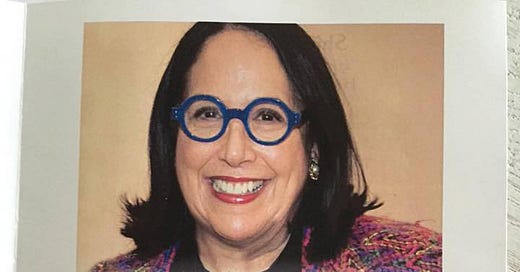Someone I know has been suffering. For the last week, she and her family have been waiting to know if their loved ones are dead or alive after their condo collapsed along with over a hundred others in Surfside, Florida. I have been following the news daily and also receiving regular updates via Facebook about what they have been learning and experiencing. The pain is palpable through the lines of the posts; despite information about the search and praise for the officials and the rescue workers, I read the waiting, the hoping, the praying, the fear as well as the hope.
The hope is like a small pilot light within that refuses to go out even when so much gets piled on top of it. From what I understand today as I write this, the hope of them being alive has been overtaken by the hope that they will be found and that they can be properly laid to rest.(As of this publishing, one of the loved ones has been found while the other remains missing.) Hope is such a powerful life force, and without it, it is not easy to find a reason to keep going.
When hope turns to despair, what do we do? When the bad news comes like it did for our family five years ago with a cancer diagnosis, how do we put one foot in front of the other? Rabbi Sharon Brous gave a high holiday sermon years ago called ‘The Amen Factor’ that I come back to again and again because of how powerful and essential it is. Please read or listen when you have time, but the message is this: When we are faced with the worst that life can bring, we need each other.
Rabbi Brous reminds us of a Mishnah, an ancient rabbinic teaching, that describes the process for when pilgrims to Jerusalem on the holidays would enter the courtyard of the holy Temple. All the people would all amass and begin a procession from the right door around the courtyard to the left except for those “to whom something happened”. Those people would go from the left and when they would encounter their fellow going the other way, they would be asked: why do you go to the left? And those who were in pain, who had lost a loved one, or who had lost their way in life would offer the reason. They would need to reveal the source of their hardship to another person and to hear them offer a response of condolence or comfort.
This image of a person in anguish walking against the grain of the community in order to be recognized, held and supported again and again moves me every time I learn it. When we are experiencing great difficulty in life, it often feels shocking that everyone else is simply going about their lives unaware. But that is not the case here. The incredible difficulty of needing to name the cause of their pain is only matched by the compassion and recognition found in the connection with others. As Rabbi Brous wrote: “today you walk from left to right. Tomorrow it is me. I hold you today; tomorrow you will hold me.”
Five years ago, when we heard the devastating news about my beloved mother in law, Linda Hurst, there were so many times I felt alone, confused and scared. But I wasn’t alone. On July 4th weekend 2016, when Aaron left to be with his mother when she had surgery, I was with my kids and some wonderful friends enjoying the sweetness of a small town parade and shaved ice. When we waited to hear the outcome of her surgery and what would happen next, we attended the wedding of dear friends.
My Facebook post from July 8, 2016: There are so many emotions going into this Shabbat, and I am so grateful for all of the hands that hold me up, that keep me from being swallowed up. I intend to pay it forward. In a great act of optimism and love, two people are getting married to each other this weekend: Scott and Yael. That kind of sentiment about the future can’t help but be contagious.
So we danced with them that night. And our family and our community cared for us when a few short weeks later, she died, and we mourned. We observed her yarzheit, the anniversary of her death on the Hebrew calendar, this past week and joined our community on zoom for the memorial prayer.
We have been so isolated for so long that we have not been able to see one another as we walk with our pain. It becomes that much harder to speak the words out loud and to feel the comfort from others. As we move back into communal spaces, we need to remember how to do this, how to show up for one another, how to offer love and support, how to keep the fire of hope burning within us and in others by being there.
May the memory of Linda Berey Hurst and those who lost their lives in their homes in Florida be for a blessing.



